1. Overview
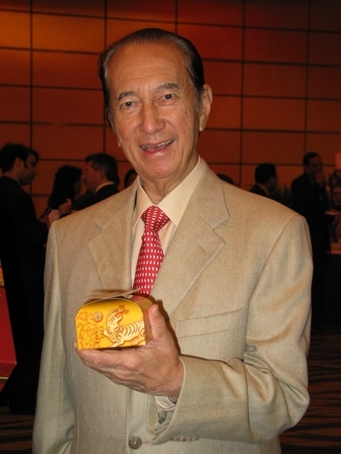
Stanley Ho Hung-sun (何鴻燊Chinese) was a prominent Hong Kong and Macau billionaire businessman, widely known as the "King of Gambling" or "Godfather" for his four-decade-long government-granted monopoly over Macau's gambling industry. Born in British Hong Kong in 1921, Ho built a vast business empire, primarily through Sociedade de Turismo e Diversões de Macau (STDM), which owns numerous casinos including the Grand Lisboa. His influence extended beyond gambling to diverse sectors such as entertainment, tourism, shipping, real estate, banking, and air transport, with his businesses employing nearly a quarter of Macau's workforce. Ho also made significant international investments across Asia and beyond.
His life was marked by a dramatic shift from early wealth to poverty following his father's financial ruin, which fueled his ambition. He was a notable philanthropist, donating valuable Chinese cultural relics and supporting educational and medical institutions. Ho was also involved in political advisory roles for both Hong Kong and Macau during their respective handovers to China. His complex personal life included four women he referred to as his wives and seventeen children, leading to significant family disputes over his vast fortune in his later years. Despite controversies, including alleged ties to organized crime, Ho received numerous honors and accolades for his contributions to society and business. He passed away in 2020 at the age of 98, leaving an indelible mark on the economic and social landscape of Macau and Hong Kong.
2. Early Life and Background
Stanley Ho's early life was shaped by a rich, multicultural ancestry and a dramatic shift in family fortunes.
2.1. Birth, Ancestry, and Family Background
Stanley Ho was born on November 25, 1921, in British Hong Kong, into a family with a complex and prominent heritage. His original patrilineal surname was Bosman, which was later sinicized to 何 (Ho). His ancestry was a blend of Chinese, Dutch-Jewish, and English roots. His great-grandfather was Charles Henry Maurice Bosman (1839-1892), a Dutch-Jewish merchant who later became a British citizen. Bosman, whose name was transliterated as Ho-Sze-Man (何仕文Chinese) in Cantonese, arrived in Hong Kong in 1859 and established himself as a director of the Hong Kong Hotel and the Hong Kong and Kowloon Wharf, also serving as the Dutch Consul. During his 14-year stay in Hong Kong, Bosman had a relationship with Sze Tai (施娣Chinese), a Chinese woman from a fishing family in Bao'an County (present-day Shenzhen and Hong Kong). They lived together without a marriage certificate and had one daughter and four sons: Ho Pak-yan, Robert HoTung Bosman (Sir Robert Ho Tung), Ho Kai-fook (Walter Bosman), Ho Kai-man, and Ho Kai-kai.
Ho's grandfather was Ho Fook (何福), a notable merchant and the younger brother of the influential Sir Robert Ho Tung. The Ho Tung family was considered one of the four great families of British Hong Kong. Ho Fook married Lo Sui-tai (Lucy Rothwell), an Eurasian woman who was the sister of compradore Lo Cheung-chiu. Lucy Rothwell was the daughter of British merchant Thomas Rothwell and a Chinese woman, highlighting the intermarriage between the Lo and Ho families.
Stanley Ho was the ninth of thirteen children born to Ho Sai-kwong (何世光), a member of the Hong Kong Legislative Council and former chairman of the Tung Wah Group of Hospitals. His mother was Sin Hing-wan (Flora Hall), the daughter of Stephen Hall (冼德芬Chinese, 1856-1925), a founder of the Tung Wah Group of Hospitals. Stephen Hall was also of Sino-British Eurasian descent, being the son of the British merchant Stephen Prentis Hall. The close relationships and intermarriages between these prominent Eurasian and Chinese families, particularly the Lo and Ho clans, contributed to the family's strong social and business ties. Notably, Bruce Lee, the renowned actor and martial artist, was the grandson of Ho Kom-tong, who was the brother of Robert Ho Tung and Ho Fook, further illustrating the family's extensive connections.
2.2. Childhood and Education
Ho's early childhood was one of immense privilege and wealth, with his family enjoying luxuries such as cars, yachts, and a large residence in the Mid-levels of Hong Kong Island that was long enough for jogging. He recalled having as many as 17 servants. However, this opulent lifestyle abruptly ended when he was 13 years old. In 1934, his father, Ho Sai-kwong, faced financial ruin due to a stock market collapse, losing a significant portion of the family's assets. His father subsequently fled to Vietnam, abandoning the family, and two of Ho's elder brothers committed suicide. This sudden plunge into poverty, with the family "engulfed in debt overnight," left a profound impact on young Stanley. He recounted his mother tearfully waking him to announce their destitution, urging him to find work. This experience instilled in him a strong determination to become wealthy.
Despite the financial hardship, Ho continued his education at Queen's College, Hong Kong. Initially, his academic performance was unsatisfactory, placing him in Class D, the lowest class level in the Hong Kong class system at the time. However, realizing that diligent study was his only path to social advancement, he applied himself rigorously. His efforts paid off, and he eventually earned a scholarship to the University of Hong Kong in 1939, becoming the first student from Class D to achieve this feat. At the university, he not only pursued his major but also became fluent in English, Japanese, and Portuguese, skills that would prove invaluable in his future business career. His university studies were cut short by the outbreak of World War II in 1941, leading to the Japanese occupation of Hong Kong and the loss of his family's remaining assets.
3. Career and Business Activities
Stanley Ho's career was a remarkable journey from wartime ventures to building a vast, diversified business empire that dominated Macau's economy.
3.1. Early Business Ventures and Entry into Macau
Following the Japanese occupation of Hong Kong in December 1941, Ho, then a final-year university student, joined a volunteer army organized by the British. His uncle, Ho Sai-man, introduced him to a role as a telephone operator for the British air defense warning team, stationed in the basement of Ho Kom-tong's house (now the Sun Yat-sen Museum).
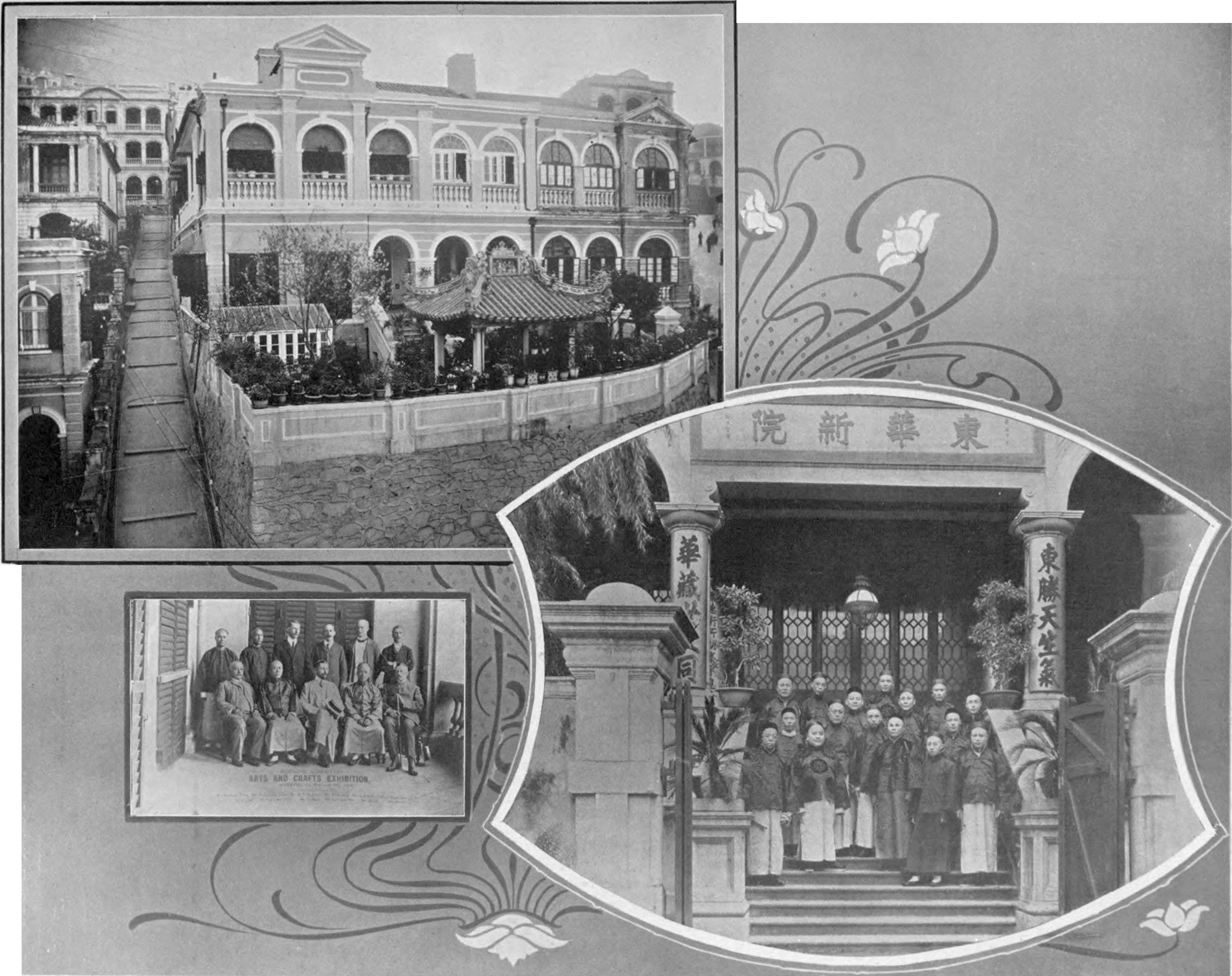
With the Japanese bombing of Hong Kong's airport and the subsequent surrender of the Governor on December 25, 1941, Ho fled to Macau, which remained a neutral Portuguese colony during the war, with only 10 MOP in his pocket.
In 1942, leveraging his proficiency in English, he secured a clerical position at Luen Cheong Company (聯昌糧油公司Chinese), a Chinese-Portuguese-Japanese joint venture in Macau. His main duty involved escorting ships, a high-risk endeavor due to the Japanese blockade. On one occasion, he led a convoy to Sumatra, Indonesia, navigating through Japanese-controlled waters. When confronted by the Japanese navy, Ho used his fluent Japanese to de-escalate the situation, successfully completing the delivery. This incident earned him the trust of his employers and, by the end of 1943, a substantial dividend of 1.00 M MOP.
At 24, in 1945, Ho decided to venture out on his own. Initially contemplating a textile factory, his wife Clementina advised him against it due to Macau's small market. Instead, he pursued textile import and export. In 1947, he co-founded "Dai My Yang Hang" with Ho Chin-hang, who would later establish Hang Seng Bank. This venture, focused on textile quotas, proved highly successful. In the autumn of 1947, he partnered with Leung Kei-ho to establish an oil refinery in Macau. However, his rapid success attracted the envy of Macau's organized crime syndicates, who sabotaged his refinery and even attempted to assassinate him in 1953, though he narrowly escaped. Feeling unsafe, Ho relocated his family to Hong Kong in the summer of 1953, purchasing an apartment on Conduit Road. Recognizing Hong Kong's burgeoning real estate market, he founded Loi On Construction Company (利安建築公司Chinese) in 1953, focusing on residential building development. By the mid-1950s, through these ventures, Stanley Ho had become a significant business figure in Hong Kong.
3.2. Macau Gaming Monopoly
Ho's pivotal entry into the Macau gambling industry began in 1961. While playing a charity football match in Macau with Hong Kong businessman Henry Fok, Ho recognized a significant business opportunity after a dinner with the Governor. When the Portuguese government announced an open tender for Macau's casino concession, Ho, along with partners Henry Fok, Macau gambler Yip Hon, and his brother-in-law Teddy Yip, formed a powerful consortium. They submitted a winning bid of 3.17 M MOP (equivalent to 410.00 K USD, with 51.00 K USD provided by Henry Fok), narrowly outbidding the long-standing Macau casino barons, the Fu family, by just 17.00 K MOP. Their proposal included ambitious promises to promote tourism, develop infrastructure, build a new port, and establish high-speed ferry services between Hong Kong and Macau, as well as pledging a significant portion of casino profits to charity.
In 1961, their company was officially renamed Sociedade de Turismo e Diversões de Macau (STDM). Under Ho's leadership, STDM held an exclusive monopoly over Macau's gambling operations for 40 years. In late 1962, Ho opened the Estoril Hotel, Macau's first luxury casino resort. This was followed by the inauguration of the flagship Lisboa Casino Hotel in 1970.
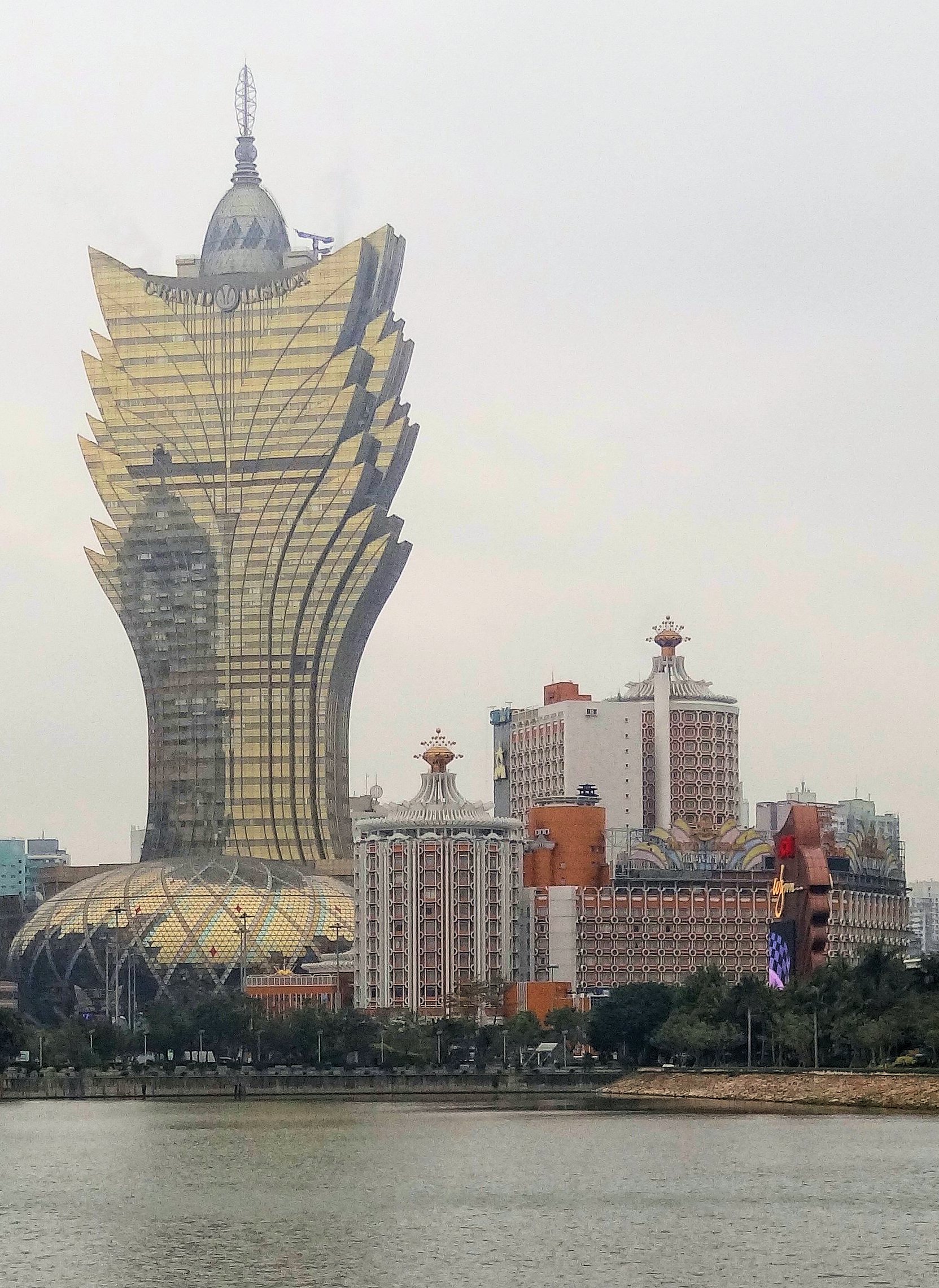
Through these developments, Ho transformed Macau from a quiet Portuguese colony into a vibrant, world-renowned gambling hub, earning him the moniker "King of Gambling." Even after Macau's handover to China in 1999 and the subsequent liberalization of the gaming market in 2002, which saw the entry of international giants like Steve Wynn's Wynn Resorts and Sheldon Adelson's Las Vegas Sands, Ho remained a dominant force, owning key properties such as the Grand Lisboa.
3.3. Shun Tak Holdings and Diversification
In 1972, Stanley Ho founded Shun Tak Holdings Ltd. (信德集團Chinese), which was subsequently listed on the Stock Exchange of Hong Kong in 1973. This conglomerate became the primary vehicle for his extensive business diversification beyond the gambling sector. Through Shun Tak Holdings, Ho expanded into a wide array of industries, including entertainment, tourism, shipping, real estate, banking, and air transport.
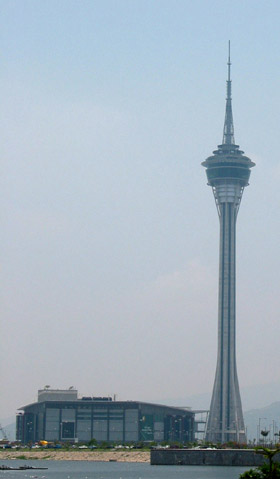
A significant part of Shun Tak's portfolio is TurboJET, a subsidiary that operates one of the world's largest fleets of high-speed jetfoils, providing crucial ferry services between Hong Kong and Macau. Ho also served as Chairman of Seng Heng Bank Limited and iAsia Technology Limited. His influence extended to community organizations, including the Chinese Recreation Club in Hong Kong, where he served as Chairman. It is estimated that Ho's various businesses collectively employed nearly a quarter of Macau's entire workforce, underscoring his profound economic impact on the region.
3.4. International Investments and Global Business
Beyond Hong Kong and Macau, Stanley Ho pursued extensive international investments and business operations. His global footprint included ventures in mainland China, Portugal, North Korea (where he operated a casino opened in 1995), Vietnam, the Philippines, Mozambique, Indonesia, and East Timor. He also made significant investments in venture capital and foreign real estate, acquiring properties in major global cities such as Singapore and London. His opinions and statements on Hong Kong's real estate and commercial development often had a considerable sway on the market, reflecting his broader influence in the region's economy.
3.5. Junket Trade and VIP Rooms
In the 1980s, Stanley Ho pioneered a crucial aspect of Macau's casino economy: the practice of subcontracting private gambling rooms, known as VIP rooms, in his casinos to independent agents. This system, which evolved into the "junket trade," was initially developed as a response to the activities of Triad groups, who were engaged in illicit activities such as scalping hydrofoil tickets to tourists. Ho's innovation provided an alternative, allowing Triad agents direct access to his casinos in exchange for commissions on the sale of casino chips to high-rolling gamblers. This formalized system became an integral and lucrative component of Macau's gaming industry, attracting wealthy players from mainland China and other parts of Asia.
4. Political and Social Activities
Stanley Ho was not only a business magnate but also an active participant in public life, holding various political advisory roles and engaging in significant philanthropic endeavors.
4.1. Political and Advisory Roles
Ho played a notable role in the political transitions of both Macau and Hong Kong. In 1987, when Portugal agreed to return Macau to China in 1999, Ho participated in the joint advisory committee overseeing the handover process. He was a Standing Committee member of the 9th, 10th, and 11th National Committees of the Chinese People's Political Consultative Conference (CPPCC), a key advisory body in mainland China.
In Hong Kong, Ho served as a member of the Selection Committee for the first Government of the Hong Kong Special Administrative Region (HKSAR), which was established in 1997. He was also a member of the Consultative Committee for the Basic Law of the Hong Kong SAR, contributing to the constitutional framework of the city. His involvement in these high-level political bodies underscored his influence and connections within the Chinese political establishment.
4.2. Philanthropy and Academic Support
Stanley Ho was a prominent philanthropist, particularly known for his efforts in cultural preservation and support for education and healthcare. In 2003, he donated a Qing dynasty bronze boar's head to China's Poly Art Museum. This artifact was part of a collection of twelve zodiac animal heads looted from the Old Summer Palace in Beijing in 1860 when it was sacked and burnt by French and British armies. Four years later, on September 21, 2007, Ho made another significant donation to the Chinese government: a Qing dynasty bronze sculpture of a horse's head, also originally taken from the Old Summer Palace. He had reportedly purchased this artifact from a Taiwanese businessman for 8.84 M USD, equivalent to 69.10 M HKD, a record price for a Chinese Qing dynasty sculpture at the time. This bronze horse head is now displayed in the Grand Lisboa Hotel in Macau.
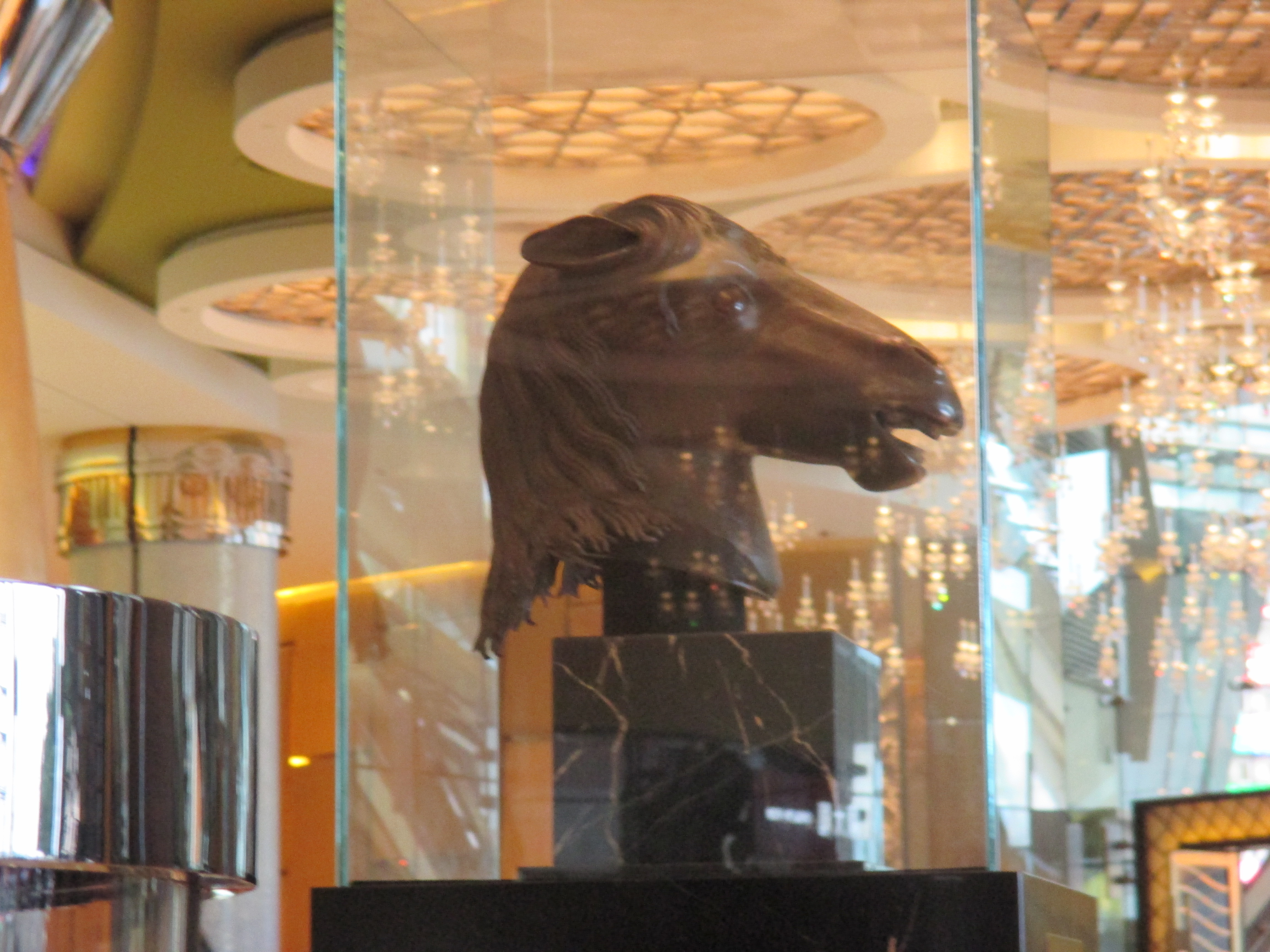
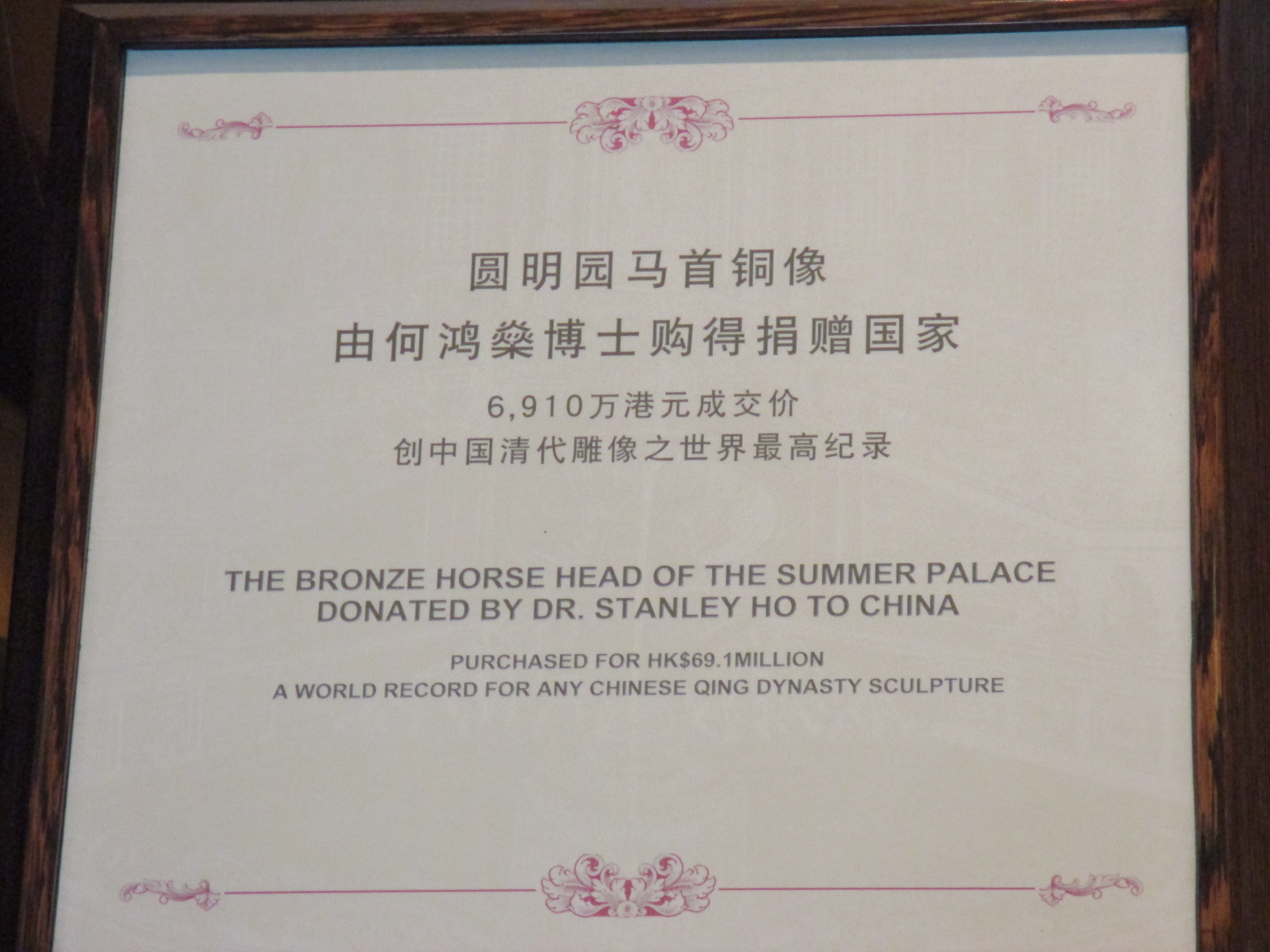
Ho was a significant benefactor to numerous educational and medical institutions. He served as the Chairman of the board of directors of the University of Hong Kong Foundation for Educational Development and Research, and a member of the Court and Council of the University of Hong Kong. He was also a member of the Court of the Hong Kong Polytechnic University (where a building is named after him) and a member of the Council of the University of Macau. Furthermore, he was a member of the board of trustees of the Better Hong Kong Foundation. He founded the Dr. Stanley Ho Medical Development Foundation (何鴻燊博士醫療拓展基金會Chinese), demonstrating his commitment to healthcare advancements.
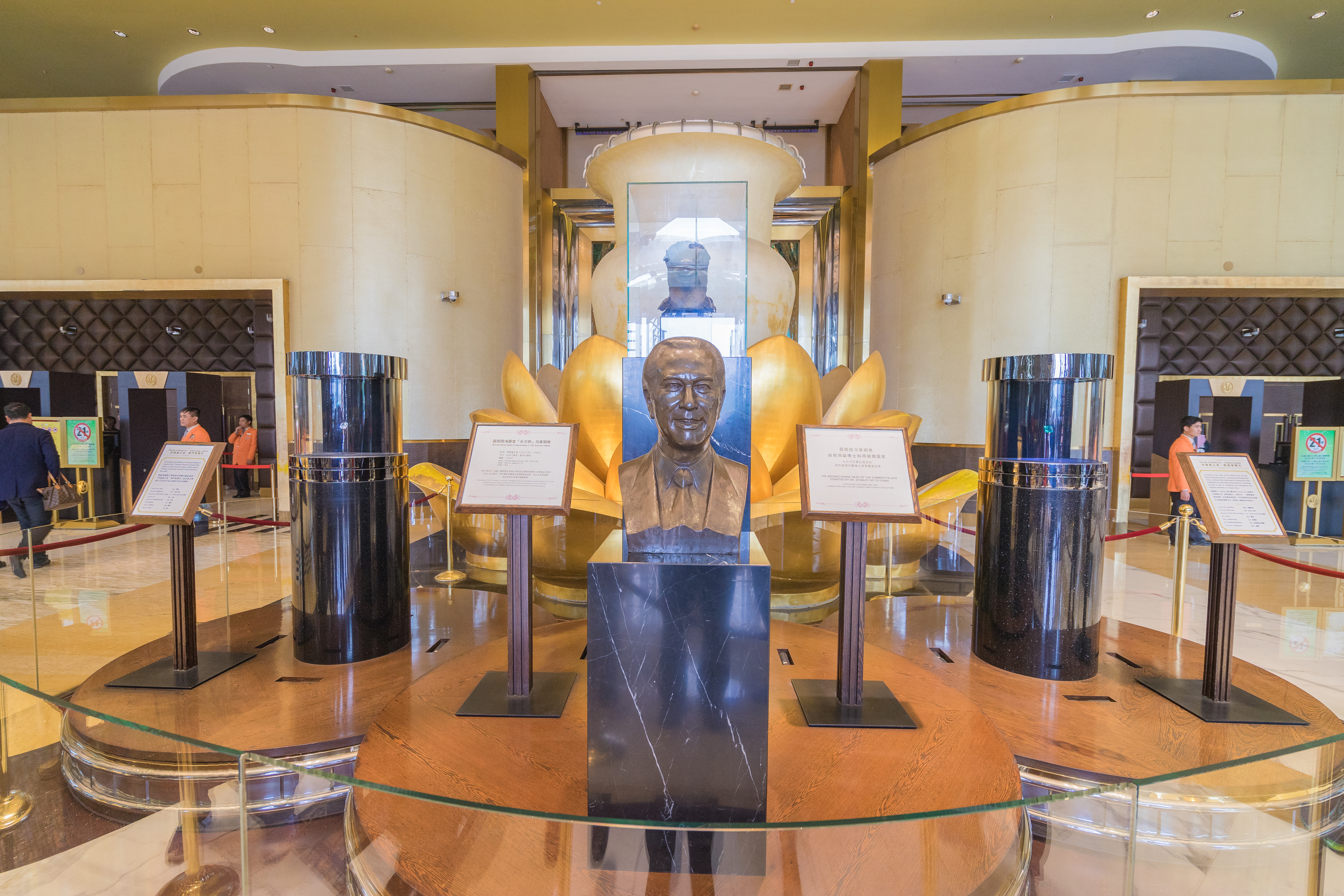
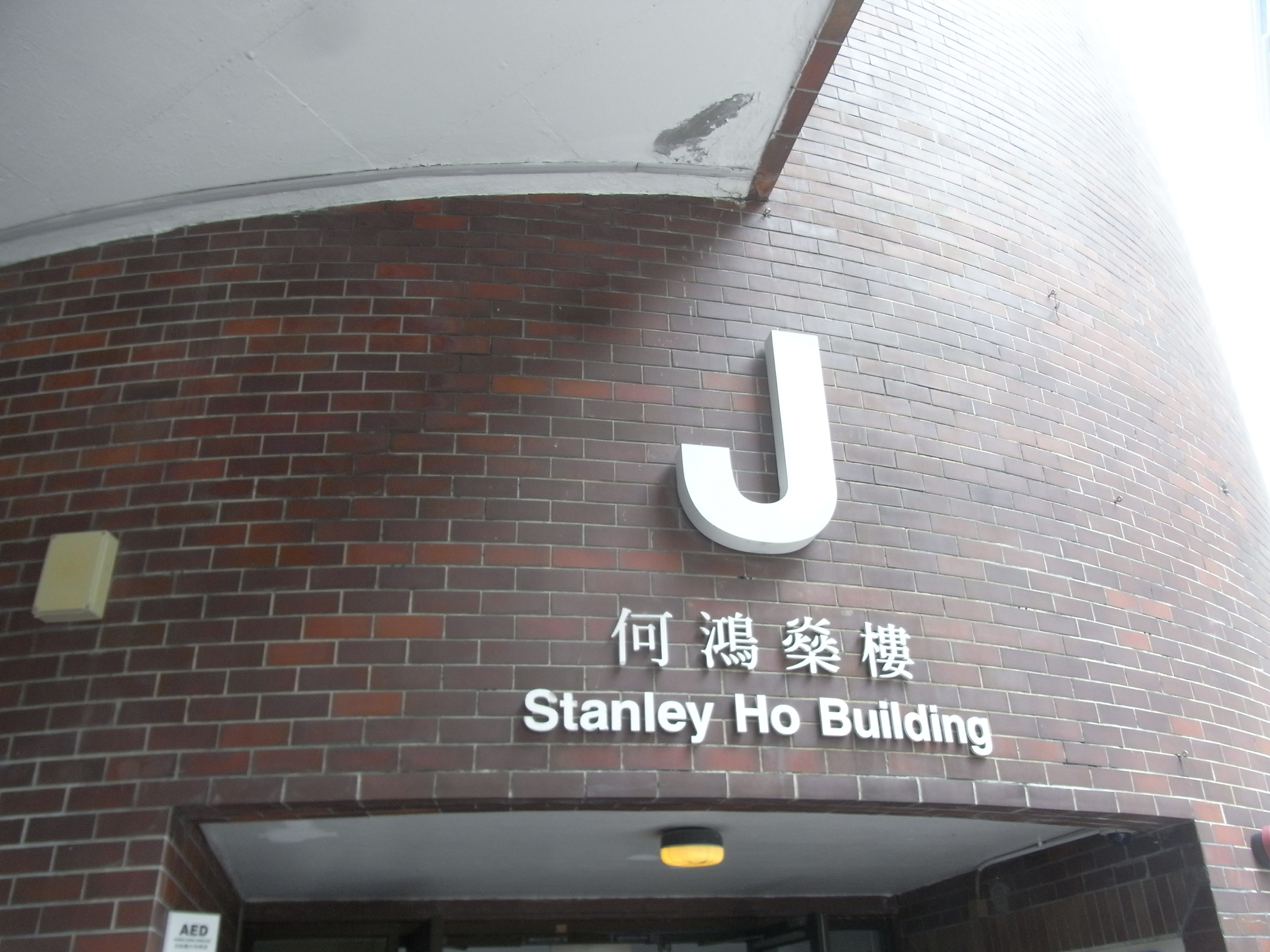
Beyond these formal roles, Ho was a passionate patron of the arts, especially dance. He frequently participated in televised charity fundraisers, showcasing his love for tango, cha-cha-cha, and waltz. He sponsored numerous dance performances at major events like the Hong Kong Arts Festival and the Macau Arts Festival, actively promoting the art form. He also invited internationally renowned dance groups, such as the National Ballet of China, to perform in Hong Kong and Macau. Ho was a patron of the Hong Kong Ballet, the International Dance Teachers Association, and a Fellow of the Royal Academy of Dance.
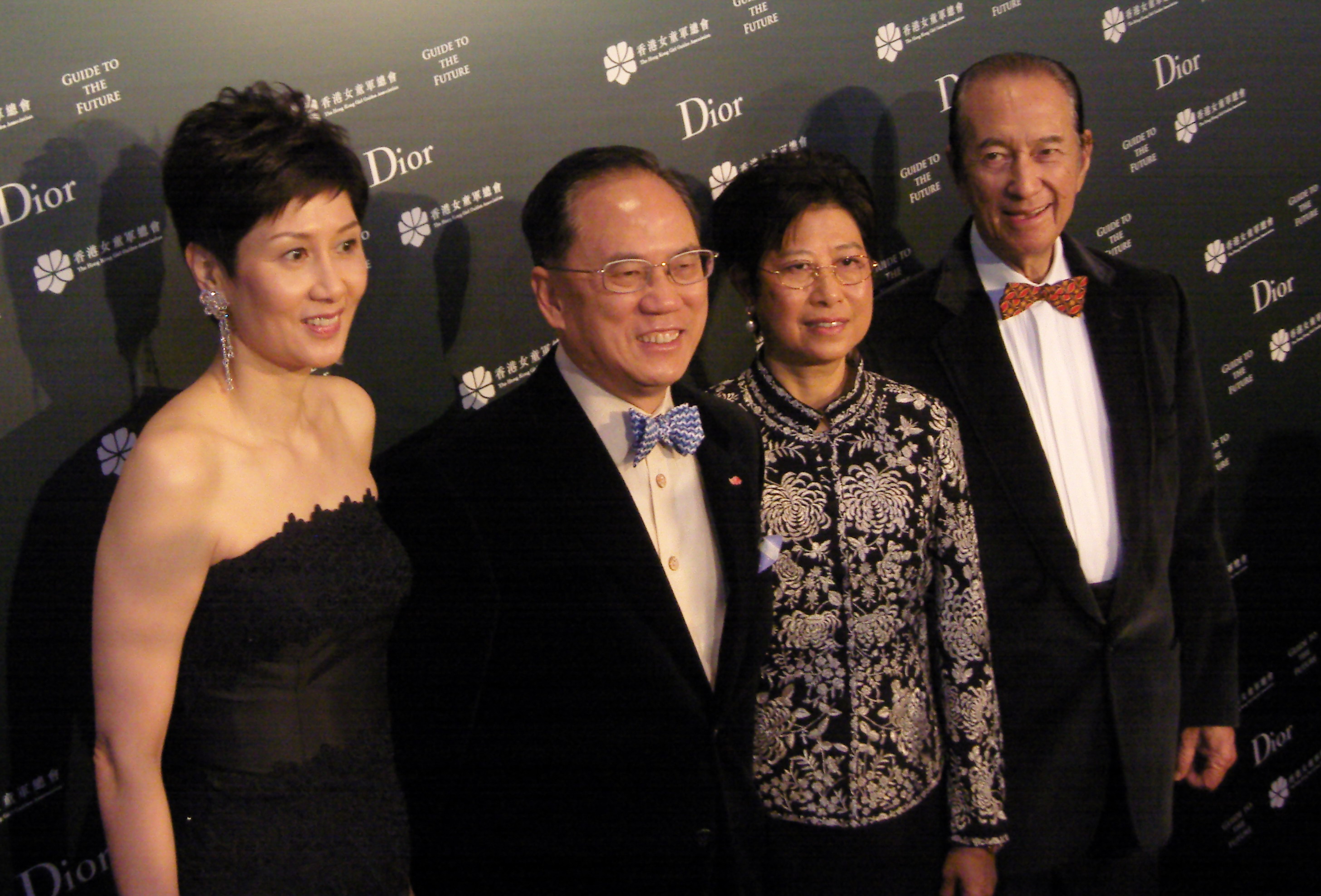
5. Personal Life and Family
Stanley Ho's personal life was as complex and expansive as his business empire, characterized by multiple marriages, a large family, and notable disputes over his succession.
5.1. Marriages and Children
Stanley Ho had 17 children born to four women, all of whom he referred to as his wives. While polygamy was outlawed in Hong Kong in 1971, some forms of it remained legal until then, and his unions were recognized under specific legal frameworks of the time.
His first wife was Clementina Ângela Leitão (黎婉華Chinese), whom he married in 1942. She hailed from a prestigious Portuguese family in Macau; her grandfather was a lawyer and the only notary public in Macau at the time. Clementina's father, Carlos de Mello Leitão, founded the newspaper Oriental Portuguese. She taught Ho Portuguese and supported his early career in Macau. They had one son and three daughters. In 1956, Clementina suffered from severe colitis, which led to significant weight loss and required long-term medication and a liquid diet. In 1973, she was involved in a motor vehicle accident that resulted in partial memory loss, requiring constant nursing care. Tragically, in 1981, their son Robert Ho (何猷光Chinese) and his wife, Suki Potier, died in a car accident in Portugal. Clementina Leitão Ho passed away in 2004 and was buried in the St. Michael the Archangel Cemetery in Macau.
In the late 1950s, Ho met Lucina Azul Jean Ying née Laam King-ying (藍瓊纓Chinese), a talented dancer. Their relationship began in 1957, when she was 14 and he was 36, and was recognized as a legal union in Macau and Hong Kong under the legacy rulings of the Great Qing Legal Code. Lucina often accompanied Ho to business events and charity galas, where they were known as the "King and Queen of Dance." They had five children together:
- Daisy Ho (何超鳳Chinese), born in 1964, who later succeeded her father as Chairman of SJM Holdings. She has two daughters, Beatrice and Gillian.
- Pansy Ho (何超瓊Chinese), born in 1962, a prominent businesswoman and a 50 percent partner in MGM Macau. She was formerly married to Julian Hui.
- Lawrence Ho (何猷龍Chinese), born in 1976, CEO of Melco Crown Entertainment Ltd., another major Macau-based casino company. He married Sharen Lo and has a daughter, Mia.
- Josie Ho (何超儀Chinese), born in 1974, a successful rock singer and award-winning actress, married to Conroy Chan.
- Maisie Ho (何超蕸Chinese), born in 1966.
Lucina's family later resided in Canada.
Ho began a relationship with Ina Chan (陳婉珍Chinese) in 1985. Ina Chan was one of the nurses hired to care for Clementina Leitão after her car accident. This union was not legitimate under the contemporary laws of Hong Kong or Macau. They had three children together:
- Florinda Ho (何超雲Chinese), born in 1989.
- Laurinda Ho (何超蓮Chinese), born in 1991 (twin).
- Orlando Ho (何猷啟Chinese), born in 1991 (twin). He was formerly married to Gigi Qi and has two daughters, Tittania and Tylia.
In 1988, Ho met Angela Leong On-kei (梁安琪Chinese) when she was his dance instructor. They had four children:
- Sabrina Ho (何超盈Chinese), born in 1990. She married Xin Qilong and has a daughter, Audrey Rose.
- Arnaldo Ho (何猷亨Chinese), born in 1992.
- Mario Ho (何猷君Chinese), born in 1995, married to Ming Xi, and has a son, Ronaldo, who is Ho's eldest grandson.
- Alice Ho (何超欣Chinese), born in 1999.
Angela Leong is an incumbent member of the Legislative Assembly in Macau.
5.2. Family Disputes and Succession
In his later years, Stanley Ho's vast business empire became the subject of significant family disputes and legal battles regarding succession and asset distribution. His wealth was divided among his daughter, Pansy Ho (5.30 B USD), his fourth wife Angela Leong (4.10 B USD), his third wife Ina Chan (1.00 B USD), and his son Lawrence Ho (2.60 B USD).
A notable conflict involved his sister, Winnie Ho (何婉琪, also known as "Tenth Aunt"). Their dispute, which began around 2001, centered on dividend payments from STDM. Winnie Ho had an illegitimate son, Mai Shun-ming, from a relationship with her cousin, Ho Hung-cheung. It was alleged that Stanley Ho used this information to exert control over his sister for 40 years. In December 2001, Stanley Ho publicly announced the removal of Winnie Ho from all her positions at STDM, citing the need for younger, more professional management. She was subsequently removed from the board and her shareholder status was revoked after she refused to transfer shares she held jointly with Stanley to his fourth wife. Winnie Ho repeatedly sought to reclaim an estimated 3.00 B HKD in accumulated surpluses and dividends through newspaper advertisements, but Stanley Ho publicly dismissed her efforts. The dispute escalated, with lawyers representing Winnie Ho, including Ho Chun-yan and Mo Chiu-kuen, reportedly being attacked, and another lawyer, Mark Side, receiving threats.
Another major dispute erupted in late January 2011, concerning the transfer of ownership of his private holding company, Lanceford. On December 27, 2010, Lanceford allotted 9,998 new shares, representing 99.98% of its enlarged share capital, to two British Virgin Islands companies: Action Winner Holdings Ltd., wholly owned by his third wife Ina Chan (50.55%), and Ranillo Investments Ltd., equally held by Lucina Laam's five children (the remainder). The document was signed by Lucina's daughter, Daisy. Ho subsequently initiated legal proceedings in the High Court against 11 defendants, including his second and third wives and children Pansy and Lawrence Ho, alleging that they had "improperly and/or illegally" altered the share structure. He sought an injunction to prevent the sale or disposal of the new shares, stating that his original intention was to divide his assets equally among his families. Amidst conflicting statements from Ho and his family members, his lawyer, Gordon Oldham, claimed Ho had been pressured into making public statements and signing legal documents without full awareness of their contents. This period of intense family conflict saw Ho begin to devolve his control over his financial empire to his various wives and children.
5.3. Hobbies, Health, and Personal Interests
Beyond his business pursuits, Stanley Ho had a vibrant personal life, with a particular passion for dancing and horse racing. Dancing was one of his favorite hobbies; he was skilled in tango, cha-cha-cha, and waltz. He frequently performed for televised charity fundraisers and sponsored numerous dance performances at events such as the Hong Kong Arts Festival and the Macau Arts Festival, actively promoting the art of dance. He also invited renowned international dance groups, including the National Ballet of China, to perform in Hong Kong and Macau. Ho was a patron of the Hong Kong Ballet, the International Dance Teachers Association, and a Fellow of the Royal Academy of Dance.
Another significant interest was horse racing. He owned several thoroughbred racehorses, including Viva Pataca, named after the Macanese pataca, the currency of Macau. Viva Pataca won several top Hong Kong races in 2006 and 2007, including the Hong Kong Derby and the Queen Elizabeth II Cup (Hong Kong).
In his later years, Ho faced significant health challenges. In late July 2009, he suffered a fall at his home that necessitated brain surgery. This incident marked a turning point in his health, leading to a prolonged period of recovery. For seven months, he was confined to the Hong Kong Adventist Hospital and later the Hong Kong Sanatorium & Hospital. During this time, he made only one public appearance, on December 20, 2009, when he traveled to Macau to meet Chinese President Hu Jintao on the 10th anniversary of Macau's return to Chinese sovereignty. Ho was discharged from the hospital on March 6, 2010, and thereafter used a wheelchair. He continued to suffer from poor health, including Parkinson's disease and kidney failure, following his head injury.
6. Honors and Recognition
Throughout his illustrious career, Stanley Ho received numerous awards, commendations, and public recognitions for his significant contributions to business and society.
6.1. Awards and Commendations
Ho was awarded an honorary doctorate of social sciences from the University of Macau in 1984. In the 1990 New Year Honours, he was appointed Officer of the Order of the British Empire (OBE) for his services to the community in Hong Kong. In 1995, the Government of Portugal bestowed upon him the Grã-Cruz da Ordem do Infante Dom Henrique (Grand Cross of the Order of Prince Henrique), the highest honor for a civilian, in recognition of his societal contributions.
Following Macau's handover to China, Ho continued to receive accolades. In 2001, he was among the first recipients of the Golden Lotus Medal of Honour from Macau. The Chief Executive of Hong Kong, Tung Chee Hwa, awarded him the Gold Bauhinia Star in 2003. In 2007, he received the Grand Lotus Medal of Honour from Macau. In 2008, the city of Cascais, Portugal, presented him with the Medal for Business Entrepreneurialism. In June 2009, he was honored with the Visionary award at the G2E Asia conference, organized by the American Gaming Association, an award delivered by then-Macau SAR Chief Executive Edmund Ho. In November 2010, he received Hong Kong's highest honor, the Grand Bauhinia Medal. He was also appointed a Companion of the Order of Saint John (CStJ), and received the Order of the Perak State Crown (SPMP) and the Order of the Crown of Terengganu (SPMT).
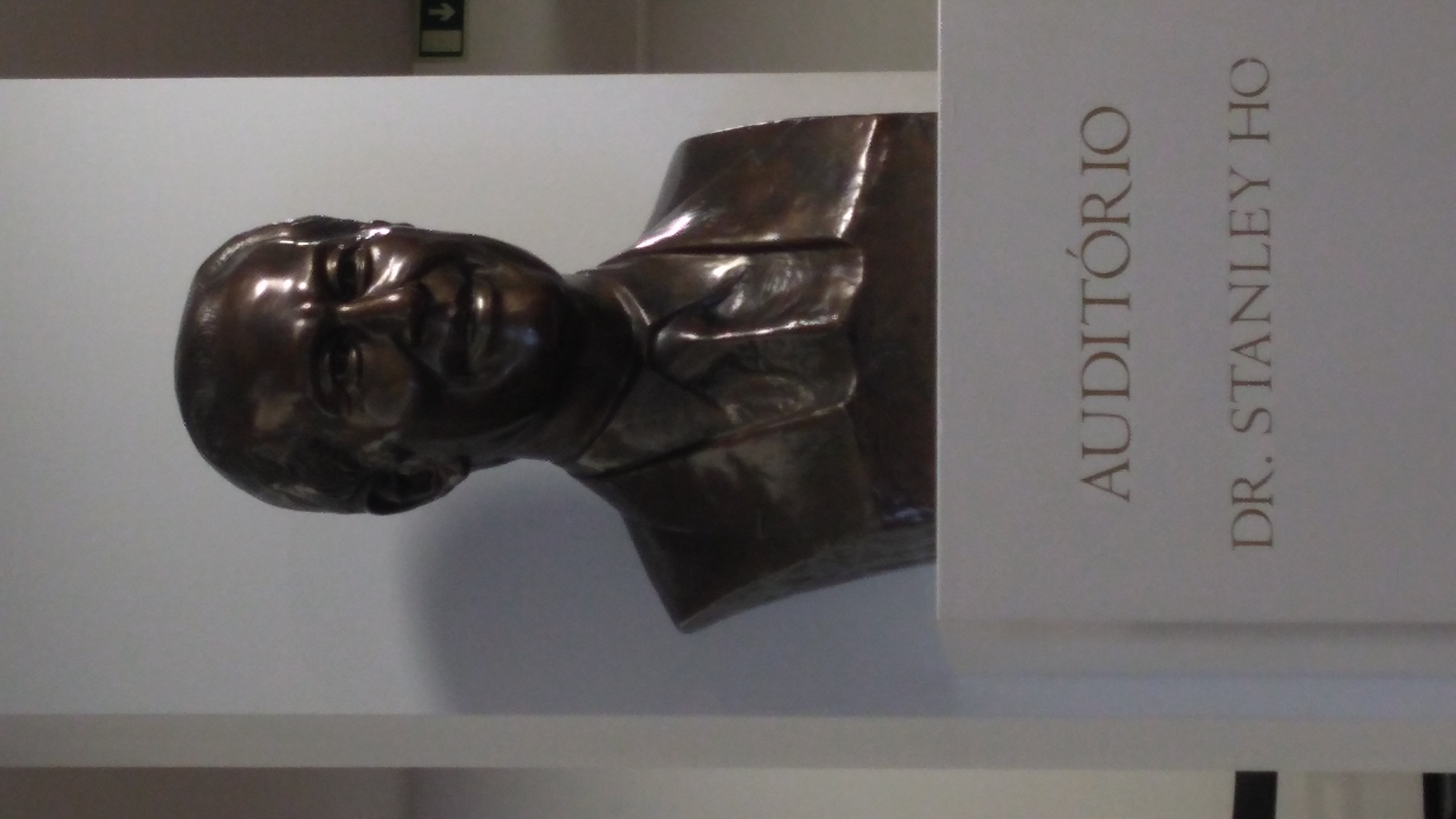
6.2. Public Recognition
Stanley Ho's significant public profile was also recognized through the naming of public spaces in his honor. In 1998, Dr. Stanley Ho Avenue in Macau was named after him, making him the first living Macanese resident to receive such an honor. In 2008, a street adjacent to the Estoril Casino in Cascais, Portugal, was renamed Avenida Stanley Ho. This marked the first time a road in Portugal was named after a living Chinese citizen, further cementing his international recognition.
7. Death and Legacy
Stanley Ho's passing marked the end of an era, but his influence and reputation continue to resonate across Macau, Hong Kong, and beyond.
7.1. Death
In his final years, Stanley Ho's health significantly declined, particularly after a stroke in 2009. He remained in the hospital for extended periods. On May 25, 2020, reports indicated his condition had become critical. Stanley Ho passed away at the Hong Kong Sanatorium & Hospital on May 26, 2020, at approximately 1:05 pm local time. He was 98 years old, with many family members by his side in his final moments. Following his death, the Chief Executives of both Hong Kong, Carrie Lam, and Macau, Ho Iat-seng, issued deep condolences, praising his immense contributions to society.
7.2. Reputation and Influence
Stanley Ho's enduring legacy is multifaceted. He was widely known by various influential nicknames, including "Godfather," "King of Gambling," "Emperor of Gambling," and "Macau's Leader," all reflecting his unparalleled dominance over the region's gaming industry for decades. His business empire, particularly STDM, was a colossal economic engine for Macau. It is estimated that his businesses employed nearly a quarter of Macau's workforce, and his income constituted approximately one-third of Macau's gross domestic product (GDP). In 2003 alone, the taxes he paid accounted for 30% of the Macau government's revenue. In 2011, he was the 13th richest man in Hong Kong with a net worth of 2.00 B USD. According to Forbes, he ranked 701st among the world's richest people in 2009, with an estimated net worth of 1.00 B USD. In 1997, just before the Asian financial crisis, his Macau Tourism and Entertainment Company's sales reached 2.00 B USD.
Beyond Macau, Ho's opinions and statements on Hong Kong's real estate and commercial development held considerable sway over the market. His strategic vision and business acumen were instrumental in transforming Macau from a relatively quiet Portuguese colony into a global gambling and tourism hub. After his death, the central Chinese government's subsequent move to tighten casino regulations in Macau further highlighted the unique political and economic relationships he had cultivated during his lifetime.
7.3. Criticism and Controversies
Despite his immense success and public accolades, Stanley Ho also faced criticism and controversies throughout his career. One of the most persistent allegations concerned his alleged ties to organized crime. The Government of Canada, citing the Manila Standard newspaper, reported that Ho had links to the Kung Lok Triad (Chinese mafia) and was connected to "several illegal activities" between 1999 and 2002. Similarly, the New Jersey Division of Gaming Enforcement also cited a United States Senate committee and several government agencies in reporting Ho's alleged ties to Chinese organized crime. These allegations surfaced during the state's investigation into his connections with American casino operator MGM Mirage.
Additionally, Ho was involved in significant family disputes, particularly with his sister, Winnie Ho. Their conflict, which began in 2001 over STDM dividends, was notably bitter. Winnie Ho alleged that Stanley had used information about her illegitimate son to control her for 40 years. She was eventually removed from her positions and shareholder status in STDM after refusing to transfer shares to his fourth wife. The dispute was marked by public accusations and even alleged attacks on lawyers representing Winnie Ho, leading to speculation in the Hong Kong media about the involvement of powerful figures.
7.4. Portrayal in Popular Culture
Stanley Ho's larger-than-life persona and his influential role in the gambling world led to his portrayal and influence in popular culture, particularly in films. His life and business dealings inspired several cinematic works:
- It Could Happen Here - The Macau Tycoon (1991), a television film where he was portrayed by Jackie Lui Chung Yin.
- Casino Tycoon (1992) and its sequel Casino Tycoon 2 (1992), where the character Benny Ho, inspired by Stanley Ho, was portrayed by Andy Lau.
- Chasing the Dragon II: Wild Wild Bunch (2019), featuring the character Stanford Ho, portrayed by Michael Wong.